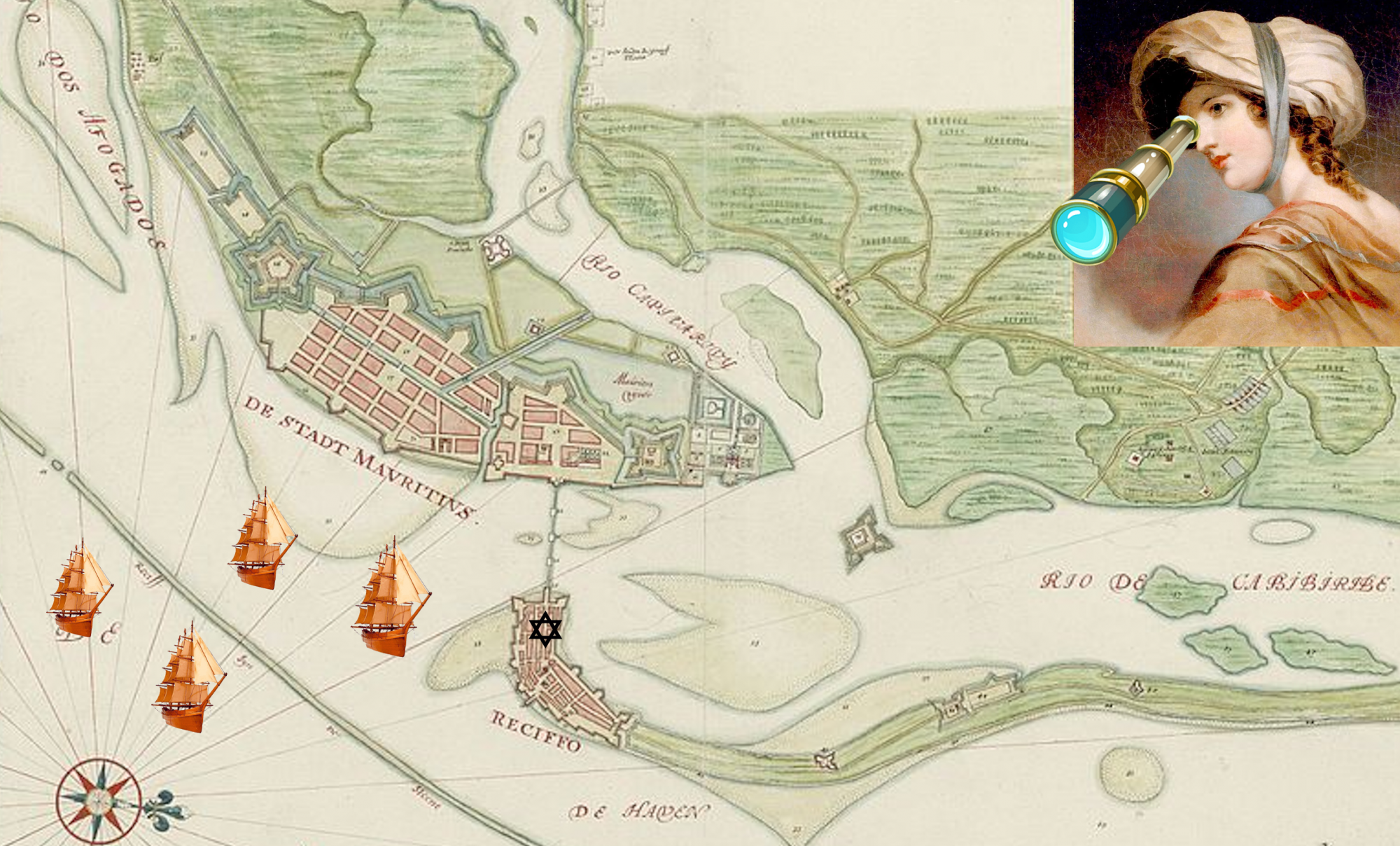
Welcome to Recife! My name is Rabbi Isaac Aboab da Fonseca, and I will be your guide.

MILLION bags!
Recife is a beautiful port town on the coast of Brazil. It was also a place of great hardship. By 1620, Brazil produced about 8,500,000 pounds each year. The way you buy sugar today in the United States, this would be over two million bags of sugar!! Each year over 170 ships would stop in Recife and then leave full of sugar. Sugar was hard to make and terrible labor went into making the “white gold.”

Back in the 1630s the Dutch captured the area, and Jews flocked to the colony hoping to make their fortunes in the sugar trade. We also made mistakes, though. Some of the Jews were former conversos who had learned how to grow and harvest sugar while in São Tomé and other Portuguese ports. We forgot how once the Catholics had sold our children into slavery in São Tomé and Príncipe and forced them to harvest the sharp cane. Recife became full of people whom the Dutch enslaved. Three thousand people in the town were free, but five thousand wore chains.

Many Jews settled alongside the Dutch and enslaved Africans on the peninsula of Recife Antigo. It was there in 1636 that the Jews built the synagogue Kahal Kadosh Zur Israel. The town of Recife was named for the protective reefs (recifes in Portuguese) along the coast, and the name Zur Israel (Rock of Israel) was a pun on another meaning of recife – rock. Zur Israel, however, is a phrase from 2 Samuel 23:2: “The God of Israel said, The Rock of Israel spoke to me.” The phrase reminded us of our dreams that God would protect us and make our congregation a blessing. By the time I was hired to lead the congregation, Recife’s Jewish community had about 1,450 Jews – nearly half of the free population of Recife, and almost as many Jews as there were living in Amsterdam!

I arrived in Brazil in 1642. By 1646 the Portuguese began to attack the colony, hoping to regain it and the sugar plantations that made it so wealthy. For Jews like myself who had been born in Portugal and whose family had been tortured by the Inquisition, this was terrifying! We had worked so hard to escape the Inquisition and practice Judaism freely. Portuguese ships surrounded our city, and soon hunger was everywhere. By the time the ships from Amsterdam ran past the Portuguese navy’s blockade, only eight barrels of flour remained for Recife’s 8,000 inhabitants. Weak from hunger, many of us couldn’t even to walk to the harbor to greet our rescuers.


Afterwards, I wrote a poem in Hebrew celebrating our redemption. The opening section allude to Rabbi Judah ha-Levi’s “Mi Khamokha” (Who is like Thee?), a song that is sung on Shabbat Zakhor (“Sabbath of Remembrance”) the Sabbath just before Purim. Just like G-d redeemed the Jews from Haman, so to HaShem saved us from the Portuguese. You can read more about my poem in the literature section of Daily Life. In it, I asked the Jewish community to repent our errors and ask for forgiveness.
Eventually we had to let our colony go. Slavery was part of our downfall: a quilombo (a community or “war camp” of escaped slaves) in nearby Palmares had grown fed up with how the Dutch treated enslaved people in Recife. The quilombo helped the Portuguese defeat the Dutch. The Portuguese overran the Dutch and all the Jews – myself included – fled for safer shores. Some, went to other colonies like Suriname, Barbados, and Newport. A few even ended up in New Amsterdam (later called New York). Others, like myself, went back to Amsterdam. There I became the chief Rabbi and lived a long and happy life. What we built in Recife didn’t die. Recife became the seeds of the major Jewish communities throughout the Americas.
Activity

Portrait of Rabbi Aboab 
Gravestone of Isaac H. Senior, Curaçao
Rabbi Aboab’s influence was felt long after he returned to Amsterdam. When Isaac Haim Senior of Curaçao passed away in 1726, his family had a portrait of Rabbi Aboab engraved at the top of the stone. Above the Rabbis is the Hebrew quote from Mishlei “a crown of glory shall she deliver you.”

